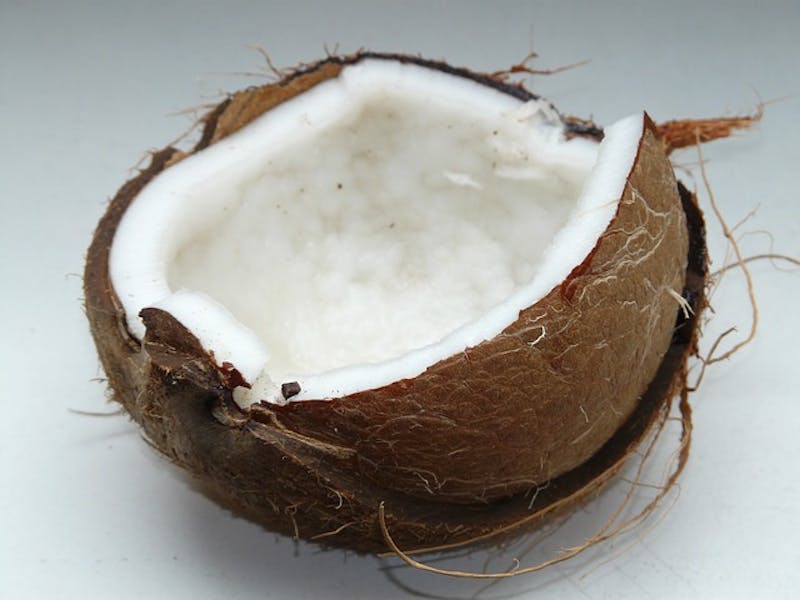
These days, you can’t pick up a magazine or surf the internet without hearing about coconut. Coconut oil, coconut milk, coconut butter – it’s all the rage. If you asked any health expert a few years ago if you should eat coconut regularly, the answer would be a resounding “no”. The tropical fruit – or more accurately, the tropical drupe – is high in saturated fat, which has been implicated in the development of a wide range of health problems including obesity and heart disease. However, new research has emerged that shows saturated fat – especially the kind in coconut – may not be as bad as everyone thought. Yet, there’s still some debate from the experts, so we wanted to break it down for you.
MCTs Vs. LCTs
Coconut is rich in a specific type of saturated fat called medium-chain triglycerides, or MCTs. Unlike other types of saturated fat, MCTs are easy to digest and your body prefers to use them right up as energy instead of storing them as fat. Who doesn’t want that? On the other hand, vegetable oils are made of mostly long-chain triglycerides, which can’t be used as a quick energy source. Instead of burning off LCTs as you eat them, your body decides to store them as fat. A study in the American Journal of Clinical Nutrition actually reported that eating MCTs may increase your metabolism three times as much as eating the long-chain triglycerides found in vegetable oils. MCTs may also help the body burn off stored fat.
Because coconut oil is a rich fat source, it slows down digestion. Slowed digestion translates to more stable blood sugar and helping you feel fuller longer. When you feel full, you’re less likely to overeat or snack on whatever you can grab.
That’s Not All
The benefits of coconut don’t end there, though. Coconut oil has a higher smoke point than other vegetable oils. So what is smoke point and why should you care? The smoke point is the point at which oil starts to smoke when it’s exposed to a heat source. When an oil smokes, it creates free radicals – these are the unstable molecules that are implicated in many chronic diseases, like cancer. When an oil is heated to the point of smoking, it also reduces some of its nutritional content. The smoke point of coconut oil is around 400 to 450 degrees Fahrenheit, while the smoke point of extra virgin olive oil falls around 320 degrees Fahrenheit.
What Else Do I Need to Know?
Because of its higher smoke point, coconut oil is a great choice for sautéing and baking. You can use coconut oil just like you would other vegetable oils, but the flavor is not as mild. When you use coconut oil, you’re going to taste it. It imparts a slightly sweet, nutty flavor to whatever you’re cooking. If you don’t like coconut, this can be a problem; but if you love the flavor, you’re going to wonder why you didn’t do this years ago. Because of its high saturated fat content, coconut oil is solid at room temperature so don’t be alarmed when you have to scoop the oil out with your spoon instead of pouring it straight from the jar – it’s worth the extra effort.

